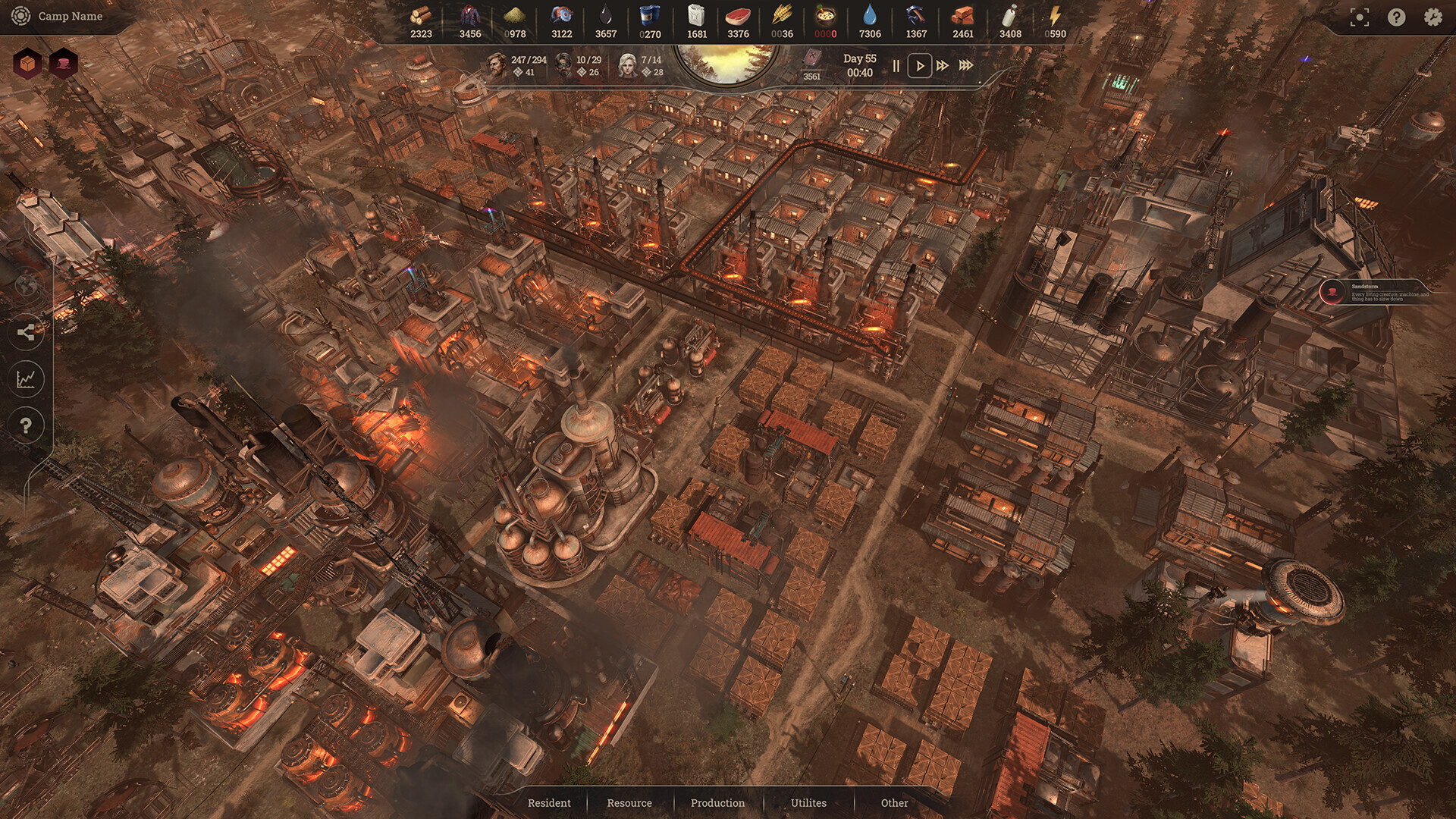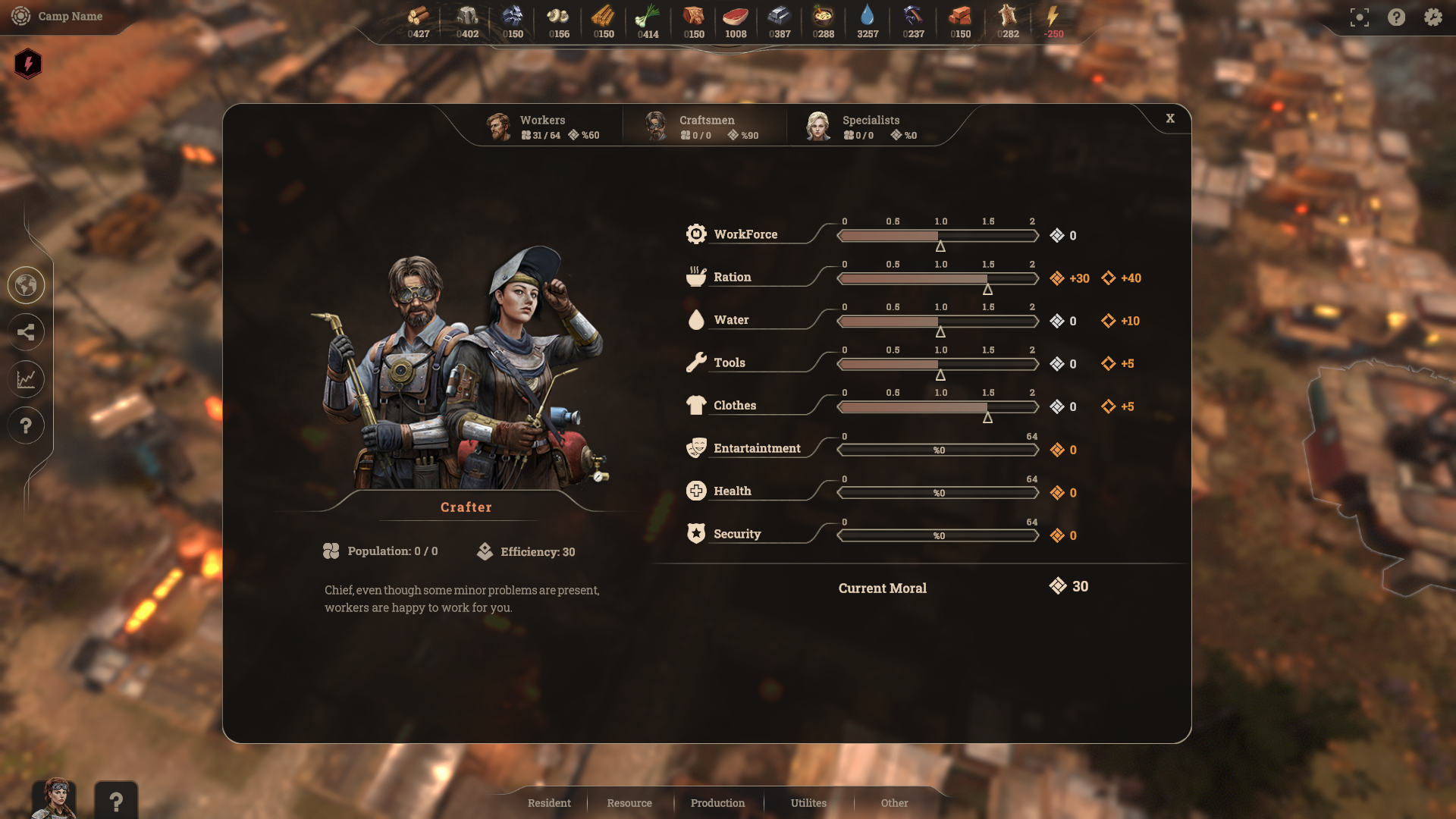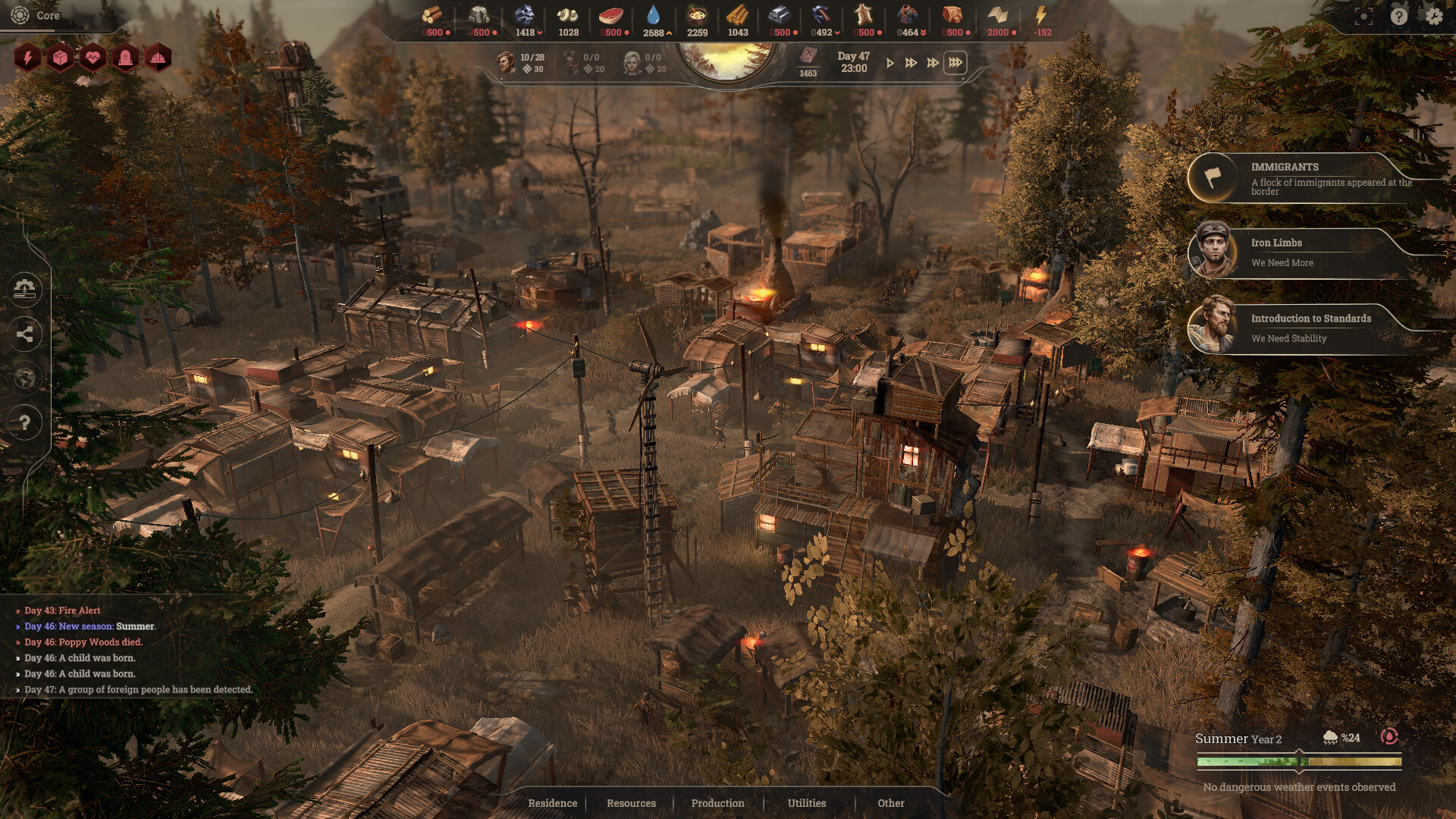This strategy game's historical ignorance made me so mad I became a post-apocalyptic dictator out of spite
New Cycle disregards opportunities to creatively mix storytelling and city building and opts for generic strategy instead.

One of the first things I realized playing the early access release of city builder New Cycle was that it was pretty broken. Not broken as in buggy, though there are bugs, but mechanically. The numbers are off in some way, too big or too small or too strangely punitive. It took me a while to really nail it down, though, because the wrongness is very well-hidden behind how generally nice-looking the whole thing is. How relatively good it felt to play.
Because it does look good—exceptionally good for the genre and the price, with stands of rich trees and beautiful grasses and buildings that go from cobbled-together desperate shacks and lean-to workshops to brick tenements and cast-concrete factories, sparking electrical dynamos, and steel refinery towers belching gas flares. It has a pretty dang good interface, too, letting you freely form roads and place buildings or snap them to a grid, with nice rich charts inside the resource summaries letting you know every piece of relevant information you'd like.
Based on those things alone I think that, despite what I'm about to say, there's clearly going to be a promising development future for New Cycle. The mechanical problems I'm going to bring up in New Cycle are probably fixable. The awful writing might not be. This is an early access game, and there's time for all this to at least get better.
But here it is: The bad parts of this game made me so mad that I became a petty, vindictive tyrant out of pure spite for its whining, rambling, annoying little denizens.
A snowball of problems
It started innocently enough, I guess. After a weakly written tutorial and introduction one of the first little moral conundrums my people asked for was a day off. One day in 10, they said, should be a day off for themselves. Absolutely not, said I: An apocalyptic solar flare has obliterated human civilization, consistent solar storms are ravaging the climate, and if we do not work a lot all of the time we will all die. We need to fight every day to try and regain industrial technology so we can prepare for a very uncertain future. You can shirk in the winter when there aren't any mushrooms to gather. Shoo, back to work.
Dear reader, it was a short hop from there to a pseudo-meritocratic caste system where the absolute best was reserved for the most intelligent and hardest-working while others toiled in relative penury.
I quickly realized that a building was efficient based on whatever specific, dominant form of social-educational class ran the thing. That meant you could have 10 guys working somewhere but for some magical reason its efficiency was based entirely on the morale of the two managers trained to run the big machines. I could give the plebs to get the literal minimum to stay alive—there are always more people coming for their jobs just over the horizon.
Keep up to date with the most important stories and the best deals, as picked by the PC Gamer team.

Normally I'd care for them out of some sense of roleplaying. Not in New Cycle, though. In New Cycle the NPCs were just so annoying that every time they opened their mouths I wanted them to suffer.
New Cycle is chasing big ambitions, trying to be a survival city builder in the vein of Frostpunk where choices you make shape a society and how it functions alongside having tradeoffs in how your people live and the material conditions they work in. Pulling off that kind of ambition requires an expansive precise vision and, perhaps even more importantly, a near-perfect unison of game narrative and mechanics.
Right now, at least, New Cycle just ain't got it.
Let's start with those vital narrative events: The writing in these pivotal events and choices is rambling and circular, dishing out some of the weakest "tough moral choices" I've ever seen in a videogame about "tough moral choices." Weak choices brought to me by my people include "should we have dogs and cats?" Yes, duh, they serve a vital socioeconomic function at our technology level. Or such a gem as "should people be able to freely trade our incredibly limited supplies?" No, you absolute clown, we're doing desperate survival not swapping snacks at the primary school lunch table. Shut up and eat your mushrooms.
None of these choices had any real consequences aside from a temporary morale debuff. Oh no, in return for a season of lower productivity you'll shut up about this forever, whatever shall I choose?
I shall choose for you to suffer. Not because you're so well-written that I'm compelled to be annoyed by you, but because after reading what you have to say I wish this game didn't have writing or any narrative components at all.
I think I'd forgive this stuff in New Cycle if the mechanical underpinnings were stronger—I've forgiven far worse in the name of good gameplay—but the fun just isn't there yet.
The numbers like resource incomes and "morale" versus "workforce" penalties are scattershot at best, generally speaking unintuitive, and at their worst so poorly implemented that they're unintentionally hilarious. Building electrified, mechanized industrial versions of your production buildings, for example, will without trial-and-error optimizing always produce less material than the primitive hand techniques you were using. Probably because you thought that saying yes to extensive safety regulations was good. It was not. No, there's no way to take that back.
And only God can help you if you told your people they could have some paper to write with.
Historic...ish?

I could criticize many, many other things about how New Cycle is designed, but I won't, aside from one that I feel perfectly epitomizes the place where narrative and mechanics are completely dissonant. A thing you can make for your people is clothes, which they go through a bizarre and shocking amount of every day, but it's one of the simplest processes of production in the game with only a couple of very abundant inputs. If you know history you know how very hilarious that is, because it's incredibly difficult and time-consuming to make fabric and cure leather and then assemble clothing that the inventions widely credited with kickstarting the industrial revolution were centered around making fabric and clothes.
Anyway in New Cycle you do that in just one small building, no big deal, I guess. Many of the middling games in the survival city builder genre are obsessed with having an appearance of realism while ignoring how things might actually be done. It comes off as a decision to be willfully and embarrassingly ignorant of how things are made—not a good look when your game is very significantly about how things are made.
This is hardly the first time I've had this kind of convergent writing-and-mechanics problem with games in the genre, and if I'm honest New Cycle is hardly the worst offender. I'm looking directly at you, Surviving the Aftermath.

It's an approach to design that just disregards so much interesting narrative and mechanical fodder in favor of implementing the same obvious choices that are in every other game in the broader survive-craft-build genre. You can't choose to only focus on smelting and ingots and wire in a game that's supposed to be about the holistic entirety of the human societal experience.
It is emblematic that I first played New Cycle last year during a Steam Next Fest, and didn't write about it because at the time it contained conversations with NPC traders generated by some godawful LLM "AI" tech that couldn't write a single sentence worth reading and would repeat itself endlessly. That's gone, but New Cycle's writing still smacks of the dry, bland prose produced by that kind of tech. It speaks to a design approach that thinks the human element can be, somehow, conveniently abstracted away.
If you want a game about people, how they relate and think and live, you have to care about every part of it—and you have to care about how people speak. You have to tell that story in a compelling way with a touch of real human empathy, a dash of pathos, or all the fancy tech and nice models and flashy lighting in the world can't make it a good one.
Jon Bolding is a games writer and critic with an extensive background in strategy games. When he's not on his PC, he can be found playing every tabletop game under the sun.

